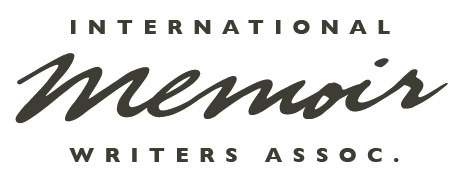“There Is a Crack in Everything, That’s How the Light Gets In” – Leonard Cohen
As a memoir teacher and as a therapist, I am privileged to see behind the mask that people tend to wear. On a daily basis, people from all walks of life, all ages and stages of the game, open up and share their true selves with me. And the gift of seeing so many true selves over so many years has changed the way I look at life, the way I see humanity itself.
“Why do you think people share all that stuff with you?” My son asked me once after I told him about a special class I just had where many students opened up and explored their deepest secrets in public and for the first time. And he had me stumped. I wasn’t sure why. I only knew that the more they shared, the more I saw their true beauty.
Not the “Facebook, I’m at Disneyland, just had a baby, look at my new puppy, we bought a new car, look at my promotion” kind of beauty. The “I’m scared after my divorce, who am I without my husband, I’m Bipolar, I’m addicted to pills, my dad never loved me, I’m scared to go to the next doctor’s appointment” kind of beauty.
As a person, I gravitate towards the “I’m trying to find my new passion, it hurts to risk, I’m scared to push myself further, I’m jumping in the deep end” kind of beauty.
To me, this is the real beauty of humanity. A kind of beauty that lives in the gray, yet in my eyes is fantastically and spectacularly multicolored.
The other day, while listening to a group member read her memoir, which is an introspective journey out of depression, I had an epiphany. The therapist in her story had stated, sort of matter-of-factly, that we, as humans, are all essentially broken. That being broken was just sort of, part of the deal.
That flew in the face of the way I had been trained to think as a therapist, as an American, as a daughter, entrepreneur, wife, and mom. I’d always thought the goal was to work hard, earn, get more, be more – to eventually find my way toward wholeness.
Broken in my eyes, had meant bad, or less than.
But through this therapist’s eyes, broken meant human. Broken meant – just what is.
That night, I couldn’t sleep (and not just because our new kitten was attacking my toes). I just kept thinking about the very concept of being whole. And the more I thought about it, the more I questioned it. I turned to the kitten, who may soon be named Mr. Apricot, and said,
“Mr. Apricot, this whole wholeness thing may just be bullshit.” The kitten seemed to get where I was going, so I continued.
“What if, wholeness and perfection are a bill of goods we have been sold along with the Cinderella myth?”
The next morning, I put pen to paper and wrote:
Every person I have ever met, including myself, is what I would consider broken. And what if I had been taught at an early age that that is the beauty of life? We are beautifully broken because we ache for something we don’t have because we are imperfect or slow artists because we lost someone or something because we have a dream yet unrealized because we fill with anger or angst or wish for yesterday. What if we are beautifully broken, in a way that doesn’t need to be fixed?
And let me take it one step further, what if the broken places are where the fantastic growth stemmed from? What if we no longer feared falling, messing up, or failing because we knew these would all be opportunities to find what is most truthful and essential in our souls?
What if we were told that we are never going to have it all figured out, and that’s okay.
This doesn’t mean that you wouldn’t try to heal the hurt places. It means that you would know that perfection doesn’t exist anywhere at any time.
But what about hope you ask? If I accept all my brokenness, won’t that make me lazy, won’t that mean I have no hope?
In my observation, I don’t see that happening. What I see is that when I work with a group of memoir students, and they begin to share their true selves with one another, their struggles and failures and losses, they experience more hope. The feel connection with the community, they feel strength in seeing what they have survived. They feel empowered.
Healing, nurturing and loving ourselves, taking risks, pushing beyond bounds – hell yes, to all of that. I’m not saying to wallow in the brokenness, instead, what if you let it be your personal disco ball. Dance in it, kick up your heels and allow it to surround you. Don’t fight it. It’s your humanity talking. It wants to have a conversation with you.
So if you get to the part of your memoir when you are terrified to expose the broken parts, when you want to run and hide behind the old mask, remind yourself that broken is beautiful. Broken is where the light comes in. Broken is where we connect. Waste no more time chasing a concept of whole. Dive into your brokenness and disco the night away.
